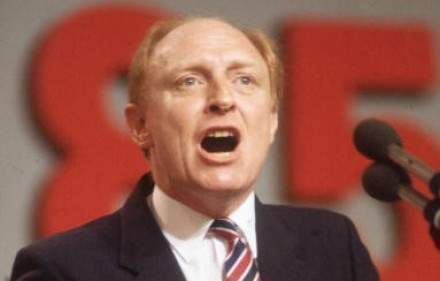The Impact of Neil Kinnock on British Politics

Introduction
Neil Kinnock, a prominent figure in British politics and a former leader of the Labour Party, has shaped the course of the party and British political landscape over the last several decades. His leadership during the 1980s and 1990s was marked by significant changes within the Labour Party, steering it towards modernisation and electability. Kinnock’s experiences resonate deeply within current political discussions, particularly surrounding party identity and leadership strategies.
Political Background
Born in 1942 in Wales, Kinnock became involved in politics at a young age, joining the Labour Party. He steadily rose through the ranks, becoming an MP in 1970. His ascent to the Labour Party leadership in 1983 came at a tumultuous time, with the party divided and reeling from electoral defeats. Kinnock faced the daunting task of revitalising the party as opposition leader while addressing internal factions and public perception.
Leadership and Reform
During his tenure as leader from 1983 to 1992, Kinnock championed several reforms within the party, focusing on the need for modern policies and a more appealing public image. He worked diligently to distance the party from the hard-left factions that had caused electoral setbacks. His famous speech at the 1985 Labour Party conference, where he condemned Militant Tendency, marked a pivotal moment in reaffirming Labour’s commitment to democratic socialism rather than extremism.
In the 1992 general election, Kinnock led Labour to a historic campaign that significantly reduced the Conservative government’s majority. Though Labour ultimately lost the election, his efforts laid the groundwork for Tony Blair’s New Labour victory in 1997. Kinnock’s approach to modernising the party, including embracing a more centrist platform, has been critical in shaping contemporary Labour ideologies.
Later Career and Influence
After resigning from the party leadership, Kinnock continued to play a significant role in international politics, serving as a European Commissioner for transport and then as a Vice President of the European Commission. This transition illustrated his ability to navigate and influence beyond national borders. Kinnock’s advocacy for European integration and cooperation remains particularly relevant in the context of Brexit and ongoing discussions about the UK’s role within Europe.
Conclusion
Neil Kinnock’s legacy in British politics is profound, having transitioned the Labour Party into a more appealing and modern entity. His influence persists in discussions about party leadership and identity as the Labour Party continues to evolve in the 21st century. Kinnock’s experiences and reforms remind current leaders of the importance of adaptability and connecting with the electorate in an increasingly complex political landscape.









